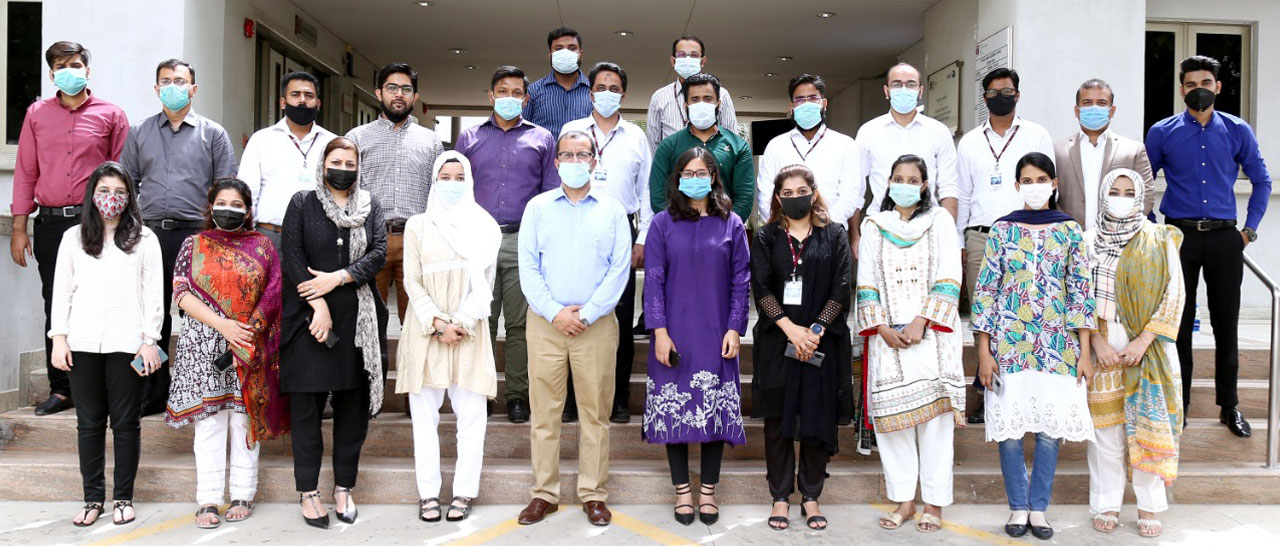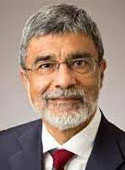The World of Energy Economics

| Date: | March 21 & 22, 2022 |
|---|---|
| Time: | 9:00am - 5:00pm |
| Venue: | City Campus, IBA Karachi |
| Investment: | PKR 60,000/ + 5% SST / participant. (Inclusive of Course material, IBA Workshop Certificate, Lunch, Refreshments & Business networking) |
| Contact: | ceeinfo@iba.edu.pk (0213) 8104700 (Ext:1809, 1812, 1808, 1804) |
A two-day highly interactive workshop covering both qualitatively and quantitatively the key aspects of Energy Economics. While reviewing the role of energy and energy policy in economic development and activity, the work-shop also focuses on the tools and economic methods/models of assessing energy resources, technologies and energy programs/projects - renewable and non-renewable. Examples are drawn from a wide range of settings.
Current and future developments and challenges in the field of energy including energy markets, business models, rapidly evolving role of renewables, megatrends (for example electric vehicles, smart grids, demand response) are also examined and deliberated upon. Their applicability or otherwise to Pakistan are also critically reviewed.
A case study, task-based and problem-solving approach is followed, interspersed with instructor's lectures and expert opinions.
If you take this course, are you going to become an expert in solving all the energy-related problems of this world or this nation? Probably Not.
Are you going to become someone who can think critically about such issues, understand their nuances, subtle-ties, trends, consequences and apply them in problem solving? Yes!
- Gaining a keen sense of the underlying assumptions affecting the viability of energy programs/projects in an economic, environmental, political and social context.
- An appreciation of the interdependence of energy economics and energy policy; the ability to develop sound energy policies
- Gaining essential knowledge of basic assessment tools and their applicability in evaluating energy initiatives at a national and local level.
- Using the insights gained, to improve project feasibility, development, planning and execution
- An understanding and appreciation of the diverse and ever-changing drivers of energy supply and demand.
- Developing a basic knowledge of key global market models and trends in the electricity sector and assessing their applicability to Pakistan at a national and local level.
- Becoming familiar with different energy data platforms.
- Energy ---- an introduction --- essential linkages between energy, society and technology.
- An understanding of energy --- what is it? where do we need it? why do we need it? its consequences?
- Definitions and forms of energy.
- Does the energy industry differ from the rest of the economy? in what ways?
- A brief history of energy.
- Energy data platforms and their analysis. The importance of data and information.
- The concept of Energy Intensity.
- Demand ---- derived, economic foundations, evolution of analysis, drivers, outlook. Basic forecasting methods
- What factors will affect Pakistan's overall demand for electricity? Discussion.
- Energy and Development --- inextricable linkages
- Sustainable development goals
- Access to energy --- its importance
- The Energy Trilemma Index
- Energy Policies --- basics, and how they affect development
- What is energy policy? Its multidimensional nature.
- Why do nations/regions/ communities develop energy policies? Drivers of policy. Examples from both developing and developed nations.
- Energy Security ---- criteria, examples.
- Pakistan's Oil Security – challenges and way forward
- Germany's Energiewende --- challenges. Can developing countries adopt/adapt?
- Optimum design of energy policies --- considerations.
- Examples of some policy instruments
- Climate Change
- Its causes, its effects and its challenges
- Pathways to decarbonization
- Environmental policies – a "generic" review.
- Mitigation or adaptation? Which path to follow? Why?
- How to address the social cost of carbon --- carbon tax, carbon credits
- Electricity Markets and Structure --- global and national
- Basics of the power sector
- US Electricity Markets -- structure, business models, role of regulators, locational marginal pricing
- Pakistan market, structure and reasons for liabilities
- Levelized cost of electricity metrics --- how it works and its usefulness. Caveats. EIA Table discussion.
- The functioning of capacity markets and ancillary services – basics.
- Renewables --- where is the world heading? Where are we heading?
- The growth of renewables globally, in graphs and tables
- Essential costs and cost break-up --- wind and solar
- Reasons for momentum behind solar
- The opportunities and challenges that renewables bring including Pakistan-specific issues
- Energy storage --- types, potential, drivers and costs. How is LCOS calculated?
- Megatrends and more
- Electric Vehicles -- a micro and macro analysis including potential, promise, enablers and challenges. Review of a financial model.
- Energy efficiency - a brief review
- Smart grids, digitalization, demand response, microgrids and more.
- Subsidies – a brief review and critique
- Pakistan's EV policy --- a short review, time permitting
Though this will be an open enrolment course, the target audience of this workshop is policy makers in the energy industry, economists, security and investment analysts and middle to senior managers of both energy/renewables organizations and those in the corporate sector. CEOs of smaller middle level entities may be also approached.
IBA CEE Cancellation Policy for Open Enrollment Programs:
In the event of participant's cancellation, the following schedule will apply:
- 5 days before start of workshop - No cancellation
- Within 4 to 2 days prior to workshop Half program fee forfeiture
- Within 1 day and No Shows - Full program fee forfeiture
Cancellation notification must be made in writing to CEE.
Postponement
Due to any unavoidable circumstances, the workshop may be postponed by the institute. In case of postponement, the institute will refund full fee of the program or the participant may opt to defer his/her registration to the next program.
Substitute
Substitutes will be taken at least 2 days prior to the workshop. Should we be unable to accept your application for any reason, your payment (cheque/draft) will be returned to you.
Deferrals
All registrations deferrals must be requested in writing at least 2 days prior to the workshop. Send a note to the Program Registration Team indicating that you wish to have your registration deferred to another session of the same program within one year. The deposited fee will be carried forward. Please note that only one transfer is permitted. After one year, the deposited fee will be fully forfeited.
"Very informative and important topic to learn. the trainer is excellent and IBA arrangement was Impressive."
"Compensation & Benefits trainings by Hussain sb is highly recommended. CEE is doing great efforts in providing knowledgeable training."

